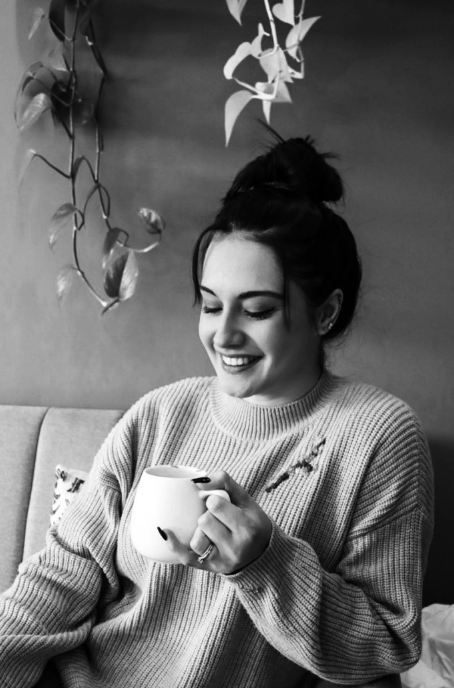Too White, and Too Brown
“I’m sorry?” The pharmacist behind the counter looks embarrassed as she asks me to spell my last name for the second time. “Don’t worry about it,” I say, as I pass my driver's licence over so she can copy the name printed on it. “It happens all the time”.
H E N A R E, hyphen, T O K A. It’s become less of a name to me and more of an alphabetised phone number that I recite when picking up prescriptions, making appointments and dinner bookings. The funny thing is, it’s not even the name I was born with. I have my husband to thank for the proud Tainui name I bear. Pākehā tongues have a far better time navigating my maiden name, Toia, although for a four letter name most couldn’t spell it.
A name is a thing of honour, it tells a story. I have always been proud of my family names – the one I was born with and the one I was given at marriage. As a member of the second generation in my whānau to be removed from te reo Māori, they have at times felt like the only connection to my culture and identity as a wahine Māori.
I grew up in Te Tai Tokerau, where names like Toia and Henare-Toka don’t receive the same questioning looks and butchered pronunciations as they do in my adopted home of Te Tauihu-o-te-waka. However, even there it was a struggle to find a true sense of belonging as a mix of some of the many nationalities that make up people living in Aotearoa.
As a white-passing girl with a Croatian mum and Māori Dad, many times I’ve felt I don’t deserve the name he passed on to me. I remember how excited I was to embrace my whakapapa Māori when I started high school and elected to take te reo as my language of choice. It made me relive memories of being a toddler and conversing with my nana in te reo, it made me emotional to think I could have this connection to her through the language I lost when she passed too early. I couldn’t learn from my father as she had chosen not to teach him in order to ‘spare’ him the challenges she’d endured in school as a native speaker.
I remember at the end of the first school year, I stood in front of the class – this shy, skinny, pale-compared-to-the-rest-of-her-classmates girl – and proudly gave my mihi. I remember one of my classmates, Jasmine, with her beautiful dark skin and thick black hair, turning to me with surprise in her voice, “are you Maori?” I remember the discussion that followed before our teacher caught on and changed the subject. “Is Tehya Maori? I had no idea.” “She doesn’t look Maori”.
I might’ve had a Maori last name but I would never be Maori. I was too white.
When I left school, I got a job with a Māori Health Organisation that helped me learn more about the culture I never really got to be a part of. I developed confidence in saying my mihi, I could hold a basic conversation in te reo. I didn't feel the need to do any more than that. I figured I was too white after all.
After I married, my husband and I moved to Blenheim – the top of the South Island – to pursue a new life after my mental health declined due to a string of traumatic experiences that made me no longer feel at home in Te Tai Tokerau. I wasn’t fully prepared for the culture shock.
I called to book a table at a local restaurant and after giving my name was told they would “try to squeeze us in”. When we arrived, our table was in a small corner next to the bathroom. Although there were plenty of empty tables, I didn’t want to presume. However, after a half-hour of no one else coming in and no reserved signs on the tables, I asked our waiter if we could move. “Of course”, he said. “I’m not sure why you were put here – we usually reserve this table for people we have reason to believe won’t show up”.
The only information I gave over the phone was my name. Maybe I was overthinking things.
I started a new job and settled into my new life. Despite the interesting and very different local attitudes and demographic (i.e many old, white people with ingrained biases and dated beliefs), I loved my new home and its beautiful landscapes.
During the first lockdown of 2020, I was surprised when my manager approached me to see if I’d be interested in heading a Zoom session about Cultural Awareness for our Te Wai Pounamu team. The organisation was trying to be more inclusive of Māori staff and educate other staff on cultural sensitivity. So they turned to the one ‘brownish’ girl for direction, despite the fact she knew so little herself. Suddenly, I realised. I had a Māori last name, so I could never be White. I was too Māori.
Throughout my life, I’ve gone from questioning my ‘Māori-ness’ to being the brownest in a room. Now I’ve realised I’m sick of other people telling me who I can or can not be. I am Māori, I am Pākeha, I am a Toia, I am a Henare-Toka, but most of all I am Tehya. I carry my name with mana and embrace all that I am.


